Intern #174
USA
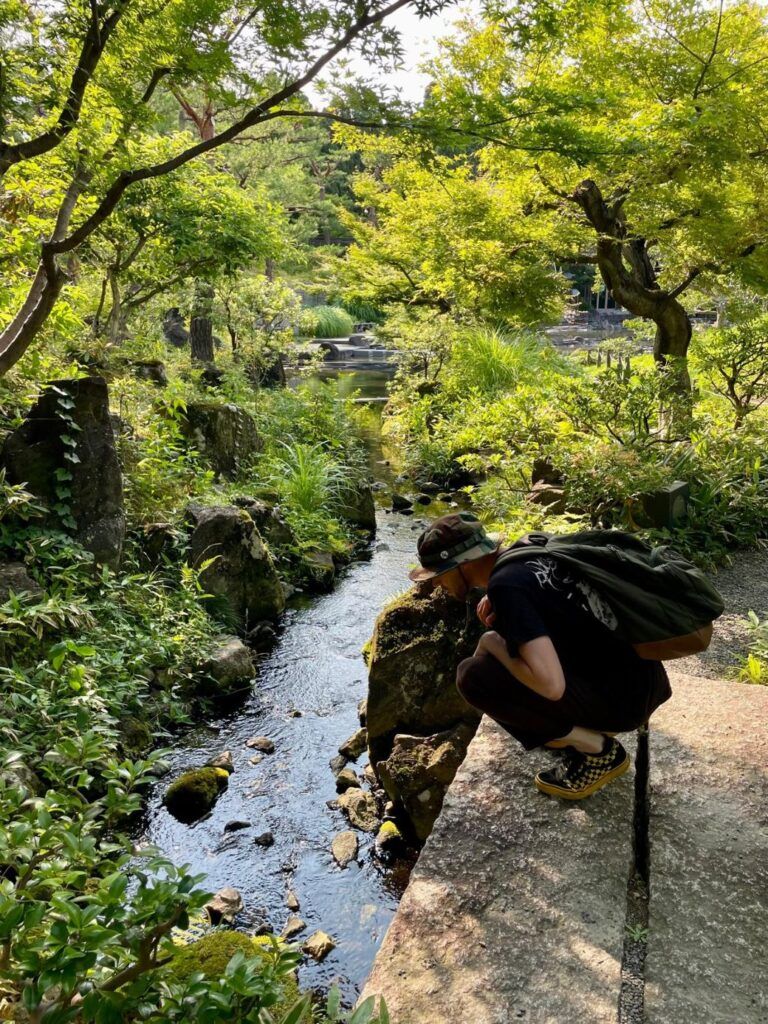
As a person born in the late 80’s and growing up in the 90’s, fragments of Japanese culture piqued my curiosity whenever I came across them. Tamagotchi, Pokemon cards, anime, instant ramen, Pockey, and ramune soda were pervasive in my elementary school social circles. However, I was interested in more than just trends. I used to spend my hard-earned allowance at the video rental shop on whatever niche Japanese video games or VHS OVA anime appeared on the shelf thanks to the older otaku that worked there. Japanese media was infinitely more alluring than western media, and strikingly different. but it wasn’t just the media that grabbed me. Japanese food, Japanese martial arts, and Japanese language all became fixations. It wasn’t long before I found a dojo and was practicing and competing in jujutsu and judo. I enrolled in summer courses studying Japanese and I frequented Japanese restaurants and groceries at every opportunity. For whatever reason, all of this felt personal to me. I felt a soul-level connection with these things which always remained, no matter what I was experiencing in the rest of my life.
My interest in tea began much later in life. In 2018, I began to study Tai Chi under JianFeng Chen from Fujian, China. His family makes oolong in his hometown. During class, I would frequently find my focus drifting to his tea tray. I knew it was for tea, but I didn’t understand its accessory. Soon after, Master Chen shared a cup of his family’s tea. At the first sip, I realized that whatever it was I had considered to be tea prior to that cup was definitely not because this was something entirely different. I discovered the daily ritual of tea is an indescribable comfort and the folkways, philosophy, and science therein are an inexhaustible well of intrigue. While my foray into tea began with the Chinese palette, it wouldn’t be long before my affection for and interest in Japan redrew my focus.
I’ve spent a lot of my professional life working with food, whether in farms, markets, or kitchens. I love how all these stages are connected, I love the passion fueling the individuals that make up these communities, and I love how these communities work to benefit each other. By the end of 2023, I’d just spent four and a half years managing an indoor farmers market run by a nonprofit organization that works with local and regional farms, ranches, fisheries, orchards, foragers, and craftspeople, to support their businesses through the seasons’ change, to helps them build their brands, and to educates the local consumers about short-chain food systems and sustainability. At this nonprofit, my love of Japanese culture manifested as I sought out, and partnered with, Wanpaku Natto, Jorinji Miso, and Mizuba Tea Co. (an Uji-cha dealer recognized by the Kyoto Chamber Of Commerce). After almost five years with the nonprofit, I hit my ceiling. I wanted to learn, grow, and be challenged with something that was more interesting to me personally. I left my job with the intention of opening a teahouse. I was on the verge of signing a commercial lease but, as life would have it, I found my way to Obubu instead–and I’m very glad for it.
I’ve lived long enough to know that whatever expectations I have are illusory and the only substantial expectation I can rely on is a shift in my perspective. My experience in Wazuka and with Obubu-san has been tremendous. It has shifted not only my perspective but also my plans for the future – but we can return to that in a moment. While it would not be a stretch to dazzle you with all the realities that are in alignment with whatever romantic vision you may have of life here, I feel it’s important to underscore the challenges as well – at least the ones that I can speak to personally.
I arrived during Spring harvest, which is the busiest time of year. In addition to peak farming and processing, tea tourism is also at its zenith. Having just come from a job where I knew all the minutiae, it was truthfully very painful for me to hop along trying to do my best, knowing that this meant loads of mistakes all day long. My knowledge of tea didn’t matter, nor did it matter my eclectic work experience, so, for a period of time, I would have to submit to the process. If you’re thinking that you and I may be alike, please try to take this advice onboard: don’t let perfect be the enemy of good. Three months is going to evaporate before your very eyes. Try to focus on what you personally can bring to this internship. What holds meaning and value? You can read about my personal project here if you’re curious what that was for me.
Once I got my feet under me, I was able to fully enjoy the variety of tasks that we get to share during internship. Tea tours are a superb example of this because I love sharing the things I enjoy with other people. I love to facilitate the same moments that I found surprising, exciting, and meaningful as I discovered more and more about tea. I love that I get to share those moments with people again and again. I love that I repeatedly get to witness that delight and realization repeatedly. It feels like I’m cheating the system somehow. Harvesting with Akky-san is absolutely one of the greatest experiences of my life and I can only be grateful that I had the good fortune of spending so much time in the fields with him during my internship. I hope others have my luck. Akky-san’s exuberance and passion for tea farming is infectious, and potentially terminal, and it’s plainly obvious that he wouldn’t have it any other way. Likewise, the time that I spent with Akky-san and with Hiro-san in the sencha factory really enlightened me to the almost ludicrous nuance that goes into the production of tea. Processing is a dance which requires you to feel the rhythm of interplay between each machine and the leaf itself. Aside from tea tourism, harvesting, and processing, there is fantastic diversity in the array of other tasks that need doing here. Personally I enjoyed this variety; it kept me feeling fresh and engaged. Boredom simply does not exist here.
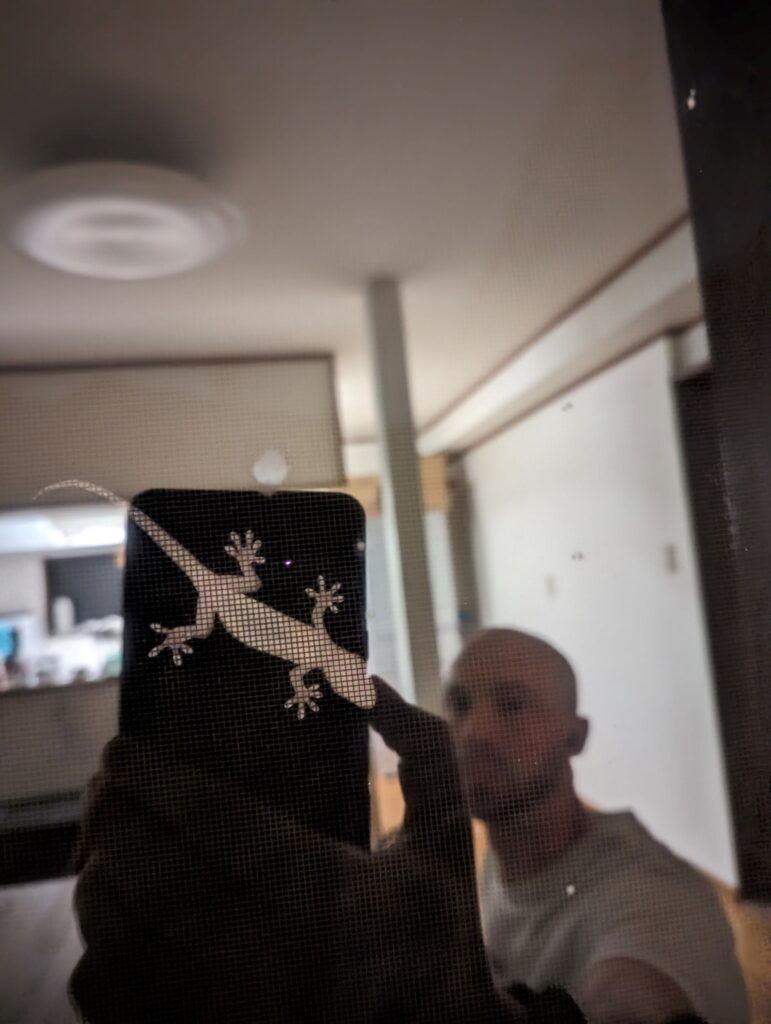
When I was considering applying for an internship, I consumed all of Obubu-san’s YouTube content, and as a result I developed somewhat of a parasocial relationship with the staff in the videos. Once I met them, they were just as inspiring and charming as I’d seen but also completely relatable and humble. I am blatantly omitting the other incredible people who have joined the Obubu family since its conception, nevertheless, the original protagonists are Akky-san, Hiro-san, Kayo-san, and Matsu-san. I had the privilege of getting to see all of them together during the farewell dinner for my senpai, and it legitimately filled my heart with happiness. These friends have not only managed to share the vision of Obubu with each other, but have also been so generous as to share it with all of us as well. The community of Obubu-san and Wazuka town, fully realized within an international context, is nothing short of a marvel. I feel incredibly lucky to have had the privilege of participating, even if trivial on the grand scale of Wazuka’s over eight century tea farming history.
I would be remiss, in the most severe meaning of the word, if I were to leave out the most unique, and what is undoubtedly the most valuable, aspect of internship here – and that is the friends I have made. Perhaps the less said here, the better – initially as an unsuccessful attempt to save myself from feeling the premature pain of saying goodbye but ultimately because I have no chance at accurately describing the gratitude I feel for the people I have met during this time. All I can say is thank you.
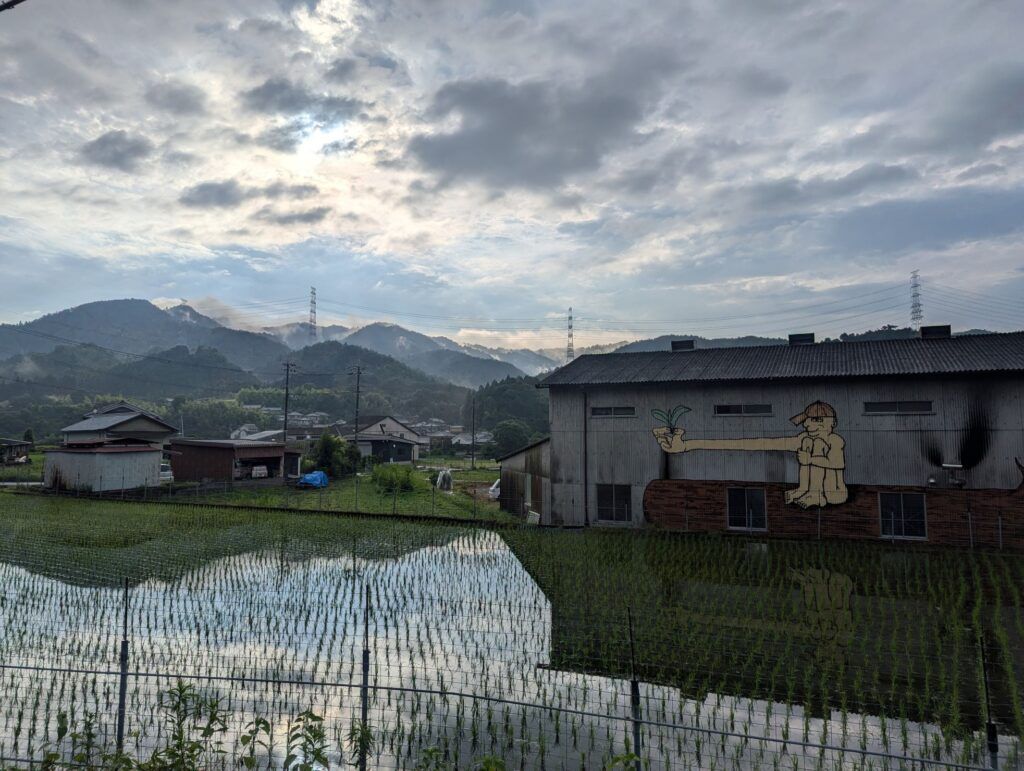
Beautiful is a hollow word when put to the task of describing Wazuka in any season. This is especially so during Spring. Everything here is poetry to the senses. Massive growths of Asiatic Jasmine weigh down the boughs of their host trees and, when in bloom, the fragrance of their nectar feels equally heavy. The waft of so many sencha factories processing their ichibancha wavers in and out of your attention throughout the village, and is a scent that is now permanently embedded in my emotional memory. The village itself has existed in these mountains since the early Kamakura period and the people of Wazuka coexist with the environment, not in competition with it. It goes without saying that fields of tea are ubiquitous, both a stone’s throw, and a remote patch atop a distant mountainside. Every possible shade of green seems to be expressed in the landscape, and the passing weather systems twain muteness and sharpness with the sunlight along the valley. Herons and cormorants stalk the river which winds its way through town, while at every bridge swallows and martins nest and feed. Macaques saunter across the road and glare at passing farmers in their Daihatsu Hijet mini-trucks. In the heat of the day hundreds of dragonflies congregate in busy clouds above rice paddies, each insect racing along an invisible byzantine track to such ends as only they know. If you have sharp eyes, you might spot a hummingbird hawkmoth, bouncing from bloom to blossom. Within the shaded treeline of the white cedars and bamboo forests, I’ve observed a badger rooting along the creekside, tanuki and civets scurrying out of sight, and I was fortunate enough to discover the elusive monotropa uniflora – or ghost plant – secreted in plain sight amid fallen leaves. The refrain of nature is omnipresent. Frogs sing and call in the rain. Crows dispute over who can caw, krah, and ah the loudest. Cicadas drone along. Songbirds reciprocate into a chorus that speaks peace and safety to your unconscious mind. If that weren’t music enough to your ears, you can also enjoy – at the turn of eight in the morning, noon, and five o’clock – three different, brief melodies, played over the village speakers. It’s hard not to feel a bit like you’re in an “Otoko wa Tsurai yo” film.
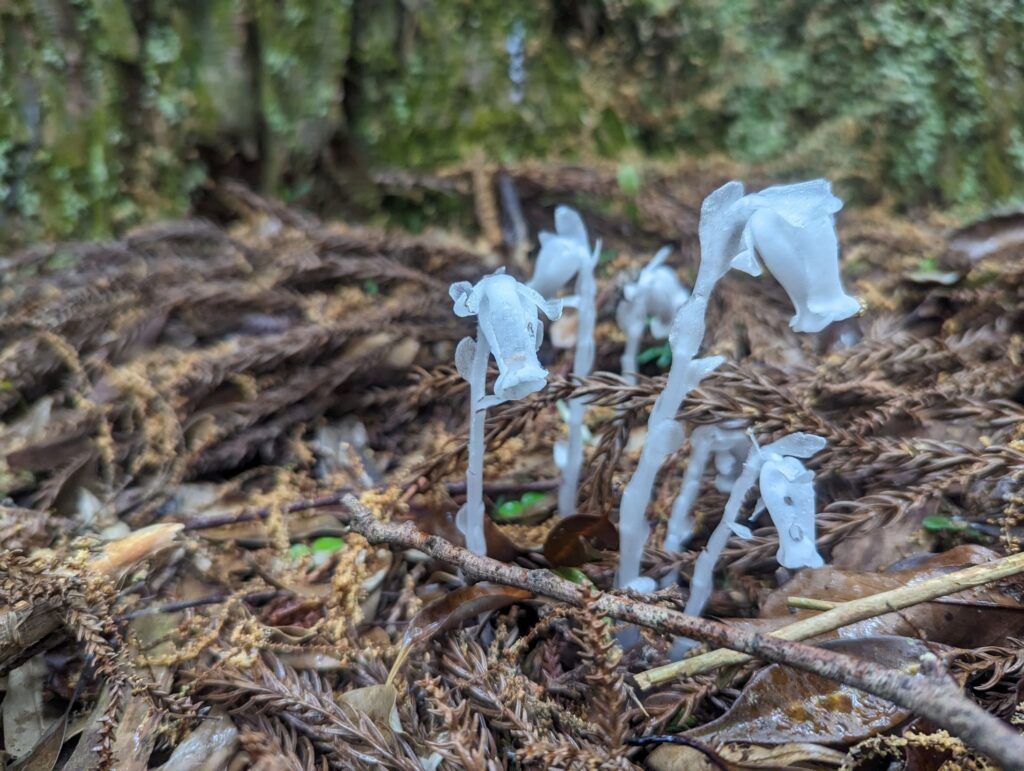
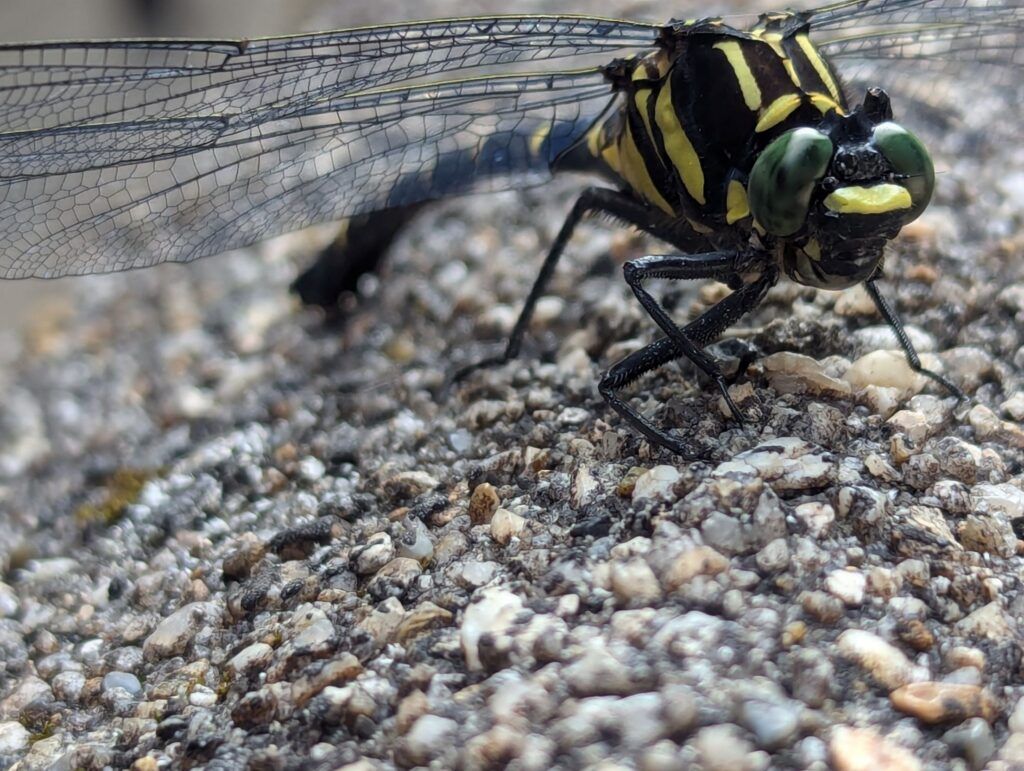
I mentioned that my experience here has shifted my intentions for the future. I’ll attempt to unpack that statement in the most relevant way I can for you who are reading. At the risk of oversimplification, some come to Obubu to fulfill a scholastic requirement, some to further their goal of working within the industry of tea, and some find Obubu because they are interested in Japanese culture. I fit somewhere in between the latter two options. Traveling to Japan always felt like a far-off dream. I knew that something was on the other side of that dream. I didn’t know what that was but finally I accepted that there was only one way I was ever going to find out. Now that I’m looking onward from the other side I’ve realized that a lifelong curiosity and feeling of connection isn’t going to be satisfied by three months, regardless how remarkable those three months have been. I don’t have a map that tells me how to achieve my goals but if I’ve learned anything from this experience, and perhaps life in general, it would be that it’s the pursuit of the goal which matters ultimately and that is what is meaningful. Once I return to the U.S. as my visa requires, I will travel to Japan again soon after. I want to learn more about tea and about Japan. I want to devote my skill set and passion to sharing the things that I love with others. Regardless of the form that takes, I want to continue to facilitate the enjoyment, discovery, and connection for others that I enjoy myself. Should I be lucky enough to grow old, I will not look back on my life with regret of never having pursued that which I find meaningful and curious. I can only hope the same for you.
Thank you Obubu-san. You haven’t seen the last of me.
